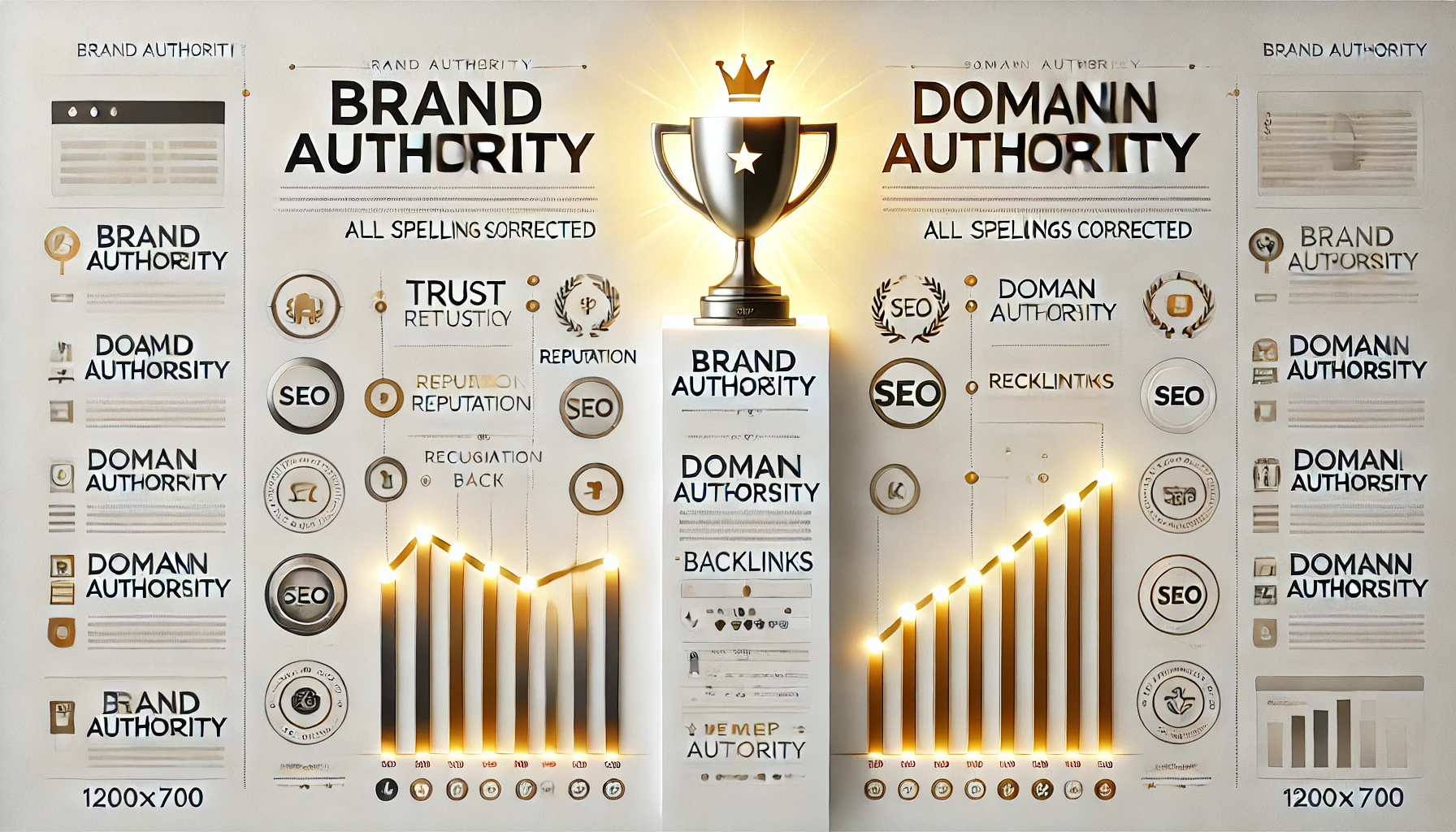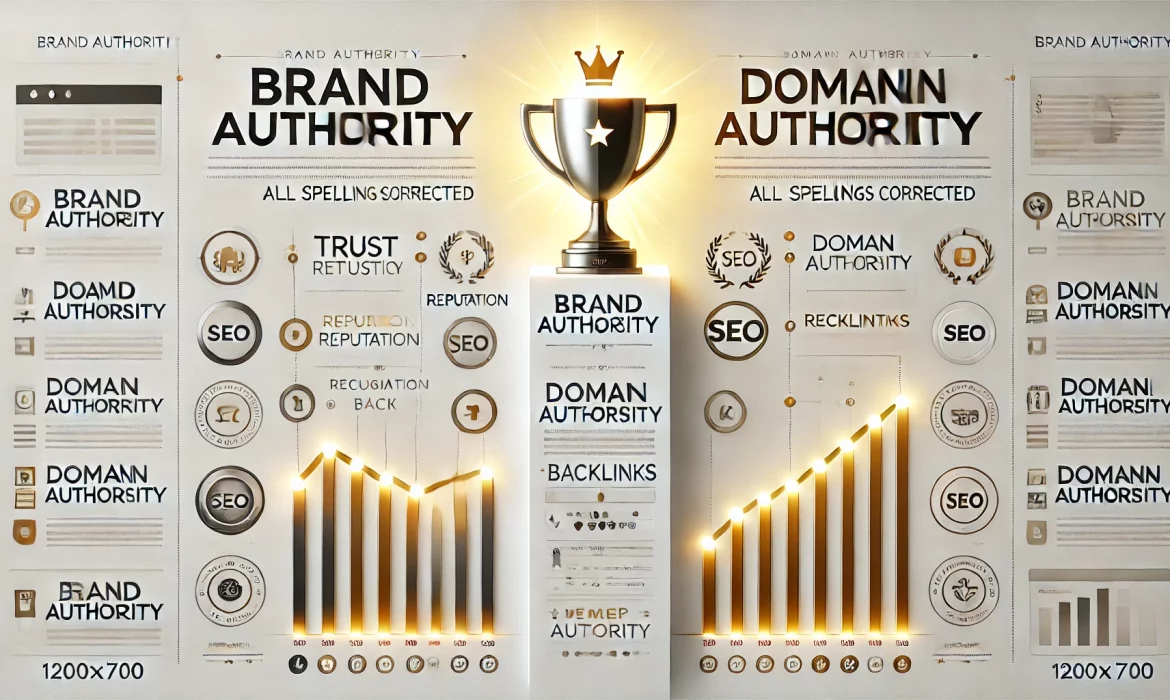
In today’s digital landscape, brand authority and domain authority are two crucial metrics that shape a website’s online presence and SEO performance. While both impact how your site is perceived by users and search engines, they serve different roles—one rooted in brand trust and recognition, the other in backlink profiles and technical SEO. Let’s explore what brand authority and domain authority mean, how they differ, and why both matter.
What Is Domain Authority and Why It Matters
Domain Authority (DA) is a metric developed by Moz that predicts how well a website will rank on search engine results pages (SERPs). It is scored on a scale from 1 to 100, with higher scores indicating a greater likelihood of ranking well. Several factors contribute to a site’s domain authority, including:
- Backlink Profile: The quality and quantity of backlinks from other authoritative sites significantly influence DA. A site with numerous high-quality backlinks is seen as more trustworthy and relevant.
- Domain Age: Older domains tend to have higher authority because they have had more time to establish credibility and trust.
- Content Quality: The relevance and quality of the content on the site also play a role in determining domain authority.
DA is primarily used by SEO professionals to gauge a website’s potential performance in search rankings and to strategize improvements.
What Is Brand Authority and How to Build It
Brand Authority, on the other hand, refers to the perceived credibility and trustworthiness of a brand in its industry or niche. This concept encompasses how well a brand is recognized and respected by its audience. Key aspects of brand authority include:
- Brand Recognition: How familiar consumers are with the brand and its offerings.
- Trustworthiness: The degree to which consumers believe in the brand’s promises and quality.
- Engagement: The level of interaction and loyalty a brand garners from its audience.
Moz has introduced a Brand Authority score, which also ranges from 1 to 100, measuring the overall strength of a brand based on various factors, including its online presence and reputation.
Key Differences Between Brand Authority and Domain Authority
1. Focus:
- Domain Authority is focused on a website’s ability to rank in search engines, primarily influenced by technical SEO factors.
- Brand Authority centers on the brand’s reputation and trust among consumers, which can be influenced by marketing strategies, customer service, and overall brand experience.
2. Measurement:
- Domain Authority is calculated using specific metrics related to SEO, such as backlinks and domain age.
- Brand Authority is more subjective and can be assessed through consumer surveys, brand recognition studies, and social media engagement metrics.
3. Impact on Business:
- A high Domain Authority can lead to better visibility in search results, driving more organic traffic to a website.
- A strong Brand Authority can foster customer loyalty, enhance word-of-mouth marketing, and ultimately lead to increased sales and market share.
FAQ
1. What is brand authority in SEO?
Brand authority in SEO refers to how well your brand is recognized, trusted, and valued by both users and search engines. A strong brand authority improves click-through rates, user engagement, and long-term visibility in search results.
2. How is domain authority calculated?
Domain authority (DA) is calculated using several SEO metrics like the number of backlinks, link quality, domain age, and site structure. It predicts how likely a domain is to rank in search engine results compared to other websites.
3. Can brand authority impact SEO performance?
Yes, brand authority significantly impacts SEO. A well-known and trusted brand often sees higher click-through rates, better user retention, and more branded searches—all of which signal relevance and value to search engines.
4. Is a strong brand name better than domain authority?
In many cases, yes. A strong brand name can outperform high domain authority by building loyalty, driving direct traffic, and increasing organic visibility through brand-related search queries.
5. How can I build brand authority online?
To build brand authority, focus on consistent branding, high-quality content, customer trust, active social engagement, and positive online reviews. These factors improve your brand reputation and support SEO efforts.
In summary, brand and domain authority are essential for online success, but they serve different purposes. Domain Authority is a technical metric that helps assess a website’s potential to rank in search engines, while Brand Authority reflects the trust and credibility a brand holds in the eyes of its consumers. Understanding these differences can help businesses develop more effective strategies for building their online presence and reputation.
EvenDigit
EvenDigit is an award-winning Digital Marketing agency, a brand owned by Softude (formerly Systematix Infotech) – A CMMI Level 5 Company. Softude creates leading-edge digital transformation solutions to help domain-leading businesses and innovative startups deliver to excel.
We are a team of 70+ enthusiastic millennials who are experienced, result-driven, and hard-wired digital marketers, and that collectively makes us EvenDigit. Read More




